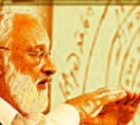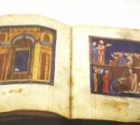
“Zakhreinu le-Hayyim – Remember Us for Life”
Undoubtedly, the theme of zikaron (remembrance) is a recurring, if not central, theme of the High Holiday period. Indeed, Zikhronot is one of the three major sections of the Musaf prayer on Rosh haShanah. Throughout the “Ten Days of Repentance” we beseech our creator in assorted ways to remember us for good life, good fortune and continued blessing. In a shiur given in 1958 (see B. David Schreiber, Nora’ot haRav, XI, p.20), the late Rabbi Joseph B. Soloveitchik discussed the unique Halakhic definition of “zikaron". The Rav explained that “the halakhic definition of memory is far more than the mechanical reproduction of images and events which transpired in the past.” Take for example the verse in Jeremiah (31:19) which states: “Ki midei dabri bo, zakhor ezkirenu od” – “Whenever I speak of him, I will remember him more.” Is not the order reversed, asks the Rav? How can one speak of another unless he first remembers him?
Apparently, the verse uses zakhor differently. The purpose of memory in Judaism is to effect change. The word zakhor does not denote the mere recollection of past events – but rather becoming involved with another. Indeed, whenever the Bible says “va-Yizkor Hashem” it does not simply mean that G-d remembered the person. After all, an omniscient G-d cannot forget. Rather, the verse means that the Almighty became actively involved in their lives. Thus, when G-d remembered Noah in the Ark (Genesis 8:1), it was to bring him to dry land. And when G-d remembered the matriarchs and Chana (Genesis 21:1; 30:22; Samuel I, 1:19), it was to enable them to conceive. When Hashem recalled his covenant with the patriarchs, it was to redeem their progeny from the travails of Egypt. Similarly, the meaning of the pasuk in Jeremiah “midei dabri bo” is that whenever I speak of him – “zakhor ezkirenu” – I become joined with him and involved in his endeavors and aspirations.
In this light, when we are commanded to “Remember the Sabbath day to keep it holy (Exodus 20:8)”, the goal is not the memory. Rather, we are bidden to become involved in some small way in the process of creation. Like the Almighty on the seventh day, we too are empowered to convert “chronos” into “chiros”: a neutral 24-hour period into an event of holiness. Similarly, when we “Remember this day of exodus from Egypt (Exodus 13:3)”, the goal is that “In every generation, each Jew should feel as if he himself had been released from Egypt”. The purpose of the Seder is to transport us back in time so that the Egypt experience and its lessons become incorporated into our lives. In Yizkor, when we remember our beloved departed, it is so that their positive values and thoughtful insights become our own. This, says the late Rabbi Benjamin Morgenstern, is the meaning of the prayer “Tehei nishmato tserura be-tsror ha-hayyim”, i.e., may the soul of the deceased be bound up with the living.
Thus, when we turn to the Creator on the High Holidays and cry out: “Zakhreinu le-Hayyim, Melekh hafets ba-hayyim – Remember us for life, O King Who desires life”, we are inviting the Heavenly King to become involved in our lives. Are we equal to that challenge?
May the New Year find us and Klal Yisrael inscribed be-Sefer hayyim, berakha ve-shalom, u-parnassah Tovah – in the book of good life, good fortune, blessing and Peace. Amen!
*Rabbi Dr. Aryeh A. Frimer is the Ethel and David Resnick Professor of Active Oxygen Chemistry at Bar Ilan University. Email - FrimeA@mail.biu.ac.il
 News for Modi'in
News for Modi'in Esra Aid to the Blind Coffee Morning
Esra Aid to the Blind Coffee Morning Netanya News
Netanya News Kabbalah For All
Kabbalah For All Haggadot
Haggadot Passover 5767 ...The Holiday of Freedom
Passover 5767 ...The Holiday of Freedom Aryeh A. Frimer
Aryeh A. Frimer